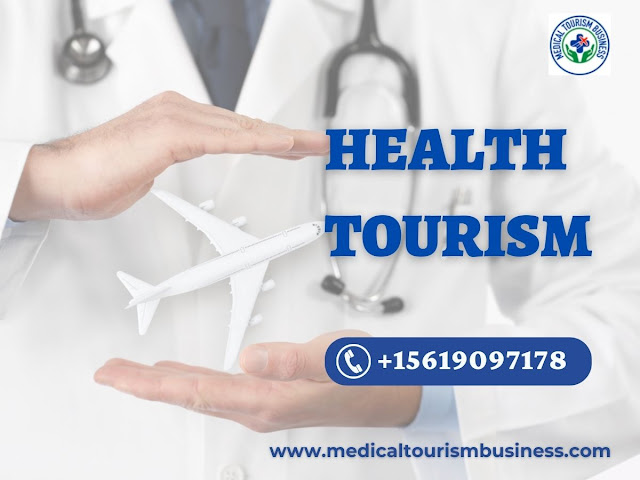Everything You Need to Know About Medical Tourism Facilitators
In recent years, the concept of medical tourism has gained immense popularity, with individuals seeking healthcare services beyond their borders. As a result, the role of medical tourism facilitators has become increasingly significant. These professionals play a crucial role in guiding individuals through the complex process of seeking medical treatment abroad. In this article, we will explore everything you need to know about medical tourism facilitators, from their responsibilities to the benefits they bring to the table.
1. Defining Medical Tourism Facilitators
Medical tourism facilitators are individuals or companies that act as intermediaries between patients and healthcare providers in different countries. Their primary goal is to streamline the entire medical travel process, ensuring that individuals receive the best possible care while navigating the challenges of seeking treatment in a foreign country.
2. Responsibilities of Medical Tourism Facilitators
Consultation and Assessment: Facilitators work closely with individuals seeking medical treatment abroad. They conduct initial consultations to understand the patient's medical history, current condition, and treatment requirements.
Destination Research: One of the key responsibilities is researching and recommending suitable destinations and healthcare facilities based on the patient's needs, budget, and preferences.
Coordination of Medical Services: Facilitators organize medical appointments, surgeries, and necessary procedures, ensuring seamless communication between the patient and the healthcare provider.
Logistical Support: From travel arrangements to accommodation, facilitators assist in organizing the logistics of the entire medical journey, ensuring a stress-free experience for the patient.
Cultural Sensitivity: Navigating healthcare systems in different countries involves an understanding of cultural nuances. Facilitators guide patients through these differences to ensure a smooth and respectful experience.
Legal and Ethical Guidance: Adhering to legal and ethical standards is paramount in medical tourism. Facilitators provide guidance on the legal aspects of medical travel and ensure ethical practices are maintained throughout the process.
3. The Benefits of Using Medical Tourism Facilitators
Expertise and Experience: Facilitators bring a wealth of knowledge and experience to the table. They are well-versed in the intricacies of international healthcare systems, allowing them to provide informed guidance.
Time and Cost Savings: By handling the logistics and coordination, facilitators save patients valuable time and effort. They can also negotiate favorable rates with healthcare providers, potentially reducing overall treatment costs.
Reduced Stress: Navigating a foreign healthcare system can be overwhelming. Facilitators act as a support system, alleviating stress and anxiety for patients by providing a clear roadmap and assistance throughout the process.
Access to Quality Healthcare: Facilitators help individuals access world-class healthcare facilities and renowned medical professionals, expanding their options beyond geographical boundaries.
4. How to Choose the Right Medical Tourism Facilitator
Credentials and Certification: Look for facilitators who are certified and have relevant credentials in the field. Certification ensures that they meet industry standards and adhere to ethical practices.
Experience and Track Record: Assess the facilitator's experience and track record. Reviews and testimonials from previous clients can provide insights into their success in facilitating medical travel.
Transparency: A reputable facilitator is transparent about all aspects of the medical journey, including costs, procedures, and potential risks. Transparency builds trust between the facilitator and the patient.
Network of Healthcare Providers: A well-established facilitator should have a broad network of reputable healthcare providers in various destinations. This ensures that patients have access to quality medical services.
5. Challenges and Considerations
Language Barriers: Facilitators must navigate language barriers between patients and healthcare providers. Effective communication is essential to ensure that all parties involved understand the treatment plan and expectations.
Regulatory Differences: The regulatory landscape for healthcare varies across countries. Facilitators must be well-versed in these differences to ensure compliance and ethical practices.
Post-Treatment Follow-up: A crucial aspect often overlooked is the facilitator's role in post-treatment follow-up. Ensuring that patients receive adequate support and follow-up care is essential for a successful medical tourism experience.
Conclusion: Empowering Global Healthcare Access
In conclusion, medical tourism facilitators play a vital role in empowering individuals to access global healthcare opportunities. Their expertise, logistical support, and commitment to ethical practices contribute to a positive and successful medical travel experience. As the demand for medical tourism continues to rise, the role of facilitators becomes increasingly indispensable, bridging the gap between patients and quality healthcare services worldwide.
Follow me for more info:
https://www.facebook.com/MedicalTourismBusiness
https://twitter.com/medtourbiz
https://www.linkedin.com/in/medicaltourismbusiness
https://www.youtube.com/@medicaltourismbusinesshttps://www.instagram.com/gilliamelliottjr/




Comments
Post a Comment